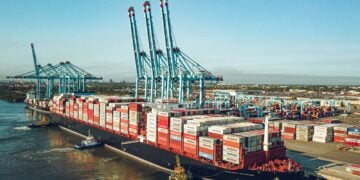The Development Bank of Nigeria Plc recently hosted its second Micro, Small, and Medium Scale Enterprises (MSMEs) summit in Kano in line with its mandate of providing access to finance to small businesses in Nigeria.
The event, which focused on the role of development bank in inclusive financing, had present the CEO of Dantata Foods, Alhaji Tajudeen Dantata who was the keynote speaker, alongside panelists, including founder of Startup Kano Hub, Aisha Tofa; Ify Mogekwu of Ify’s Kitchen; founder of Mercy Mission Global Ltd, Samirah Faruk; co-founder, Rural Farmers Hub Olusegun Adegun and founder of WeKasuwa, Saratu Buhari, according to a press release by the bank.
The managing director/CEO of Development Bank of Nigeria Plc, Tony Okpanachi, in his opening remarks accentuated the importance of MSMEs to the socio-economic development of the region and the country.
He said “It has become imperative for us to pull resources together and channel collaborative efforts towards building the capacity of the MSMSE as a way revitalising their operations to address the challenge of access to finance. This will guarantee their growth and boost the economic potentials of this critical sub-sector.”
Okpanachi said the summit is one of DBN’s stakeholder engagement strategies aimed at creating awareness around its mandate of providing access to finance, capacity building, and partial credit guarantees to the MSMEs in Nigeria. “This is important because they play a crucial role in accelerating economic growth through poverty alleviation, job, and wealth creation,” he said.
According to the Nigeria Bureau of Statistics, small and medium-scale enterprises (SMEs) in Nigeria have contributed about 48 per cent of the national GDP (Gross Domestic Product) in the last five years. With a total number of about 17.4 million, they account for about 50 per cent of industrial jobs and nearly 90 per cent of the manufacturing sector”.
Stating that significant growth has been achieved in the MSME sector, he acknowledged that there is still much to be done. Kano plays a major economic role in the northern business terrain and the challenges that MSMEs have to contend with are not different from those faced internationally.
They include access to finance, value chains, and markets. A PwC report in 2020 identified obtaining finance, finding customers, and infrastructure deficits as the most pressing problems of MSMEs in Nigeria. It is therefore pertinent for us as a Bank to champion the conversation on how MSMEs can win despite these challenges, by exposing ways through which MSMEs can benefit from the bank’s sustainable financial offerings.
Okpanachi said DBN will continue to work towards building the capacity of MSMEs, eliminating the financing constraints faced by this sector of the economy and transforming them into instruments of positive and sustained change.
Kano state governor Abdullahi Umar Ganduje who was represented by the state’s head of service, Alhaji Usman Bala Mohammed, stating that the summit coincides with the Kano State development plan aimed at accelerating industrial growth which in turn will provide an enabling environment for commerce to thrive and for the economy to grow. He urged entrepreneurs to take full advantage of the summit to seek solutions to their business challenges.
In his keynote address, Dantata said “for us to discuss inclusive financing, we must recognise the important role of the MSMEs as key players in the Nigerian economy, the role of the DBN working in conjunction with their participating financial institutions in addressing the financial constraints faced by the MSMEs”.
He elaborated on the synergies that must exist in the financial and the MSME ecosystems as a key factor to addressing sustainable funding challenges faced by entrepreneurs with a call on DBN to take the bull by the horn by providing the much-needed financial inclusion leadership needed in the region by setting aside tailored made funding solutions that takes cognizance of the peculiarity of this part of the country. This he emphasized, will complement the efforts of the Central Bank of Nigeria.
The summit was attended by Micro, Small, and Medium Enterprises in Kano and across the northwestern region as well as government agencies and stakeholders across sectors including traditional rulers.





